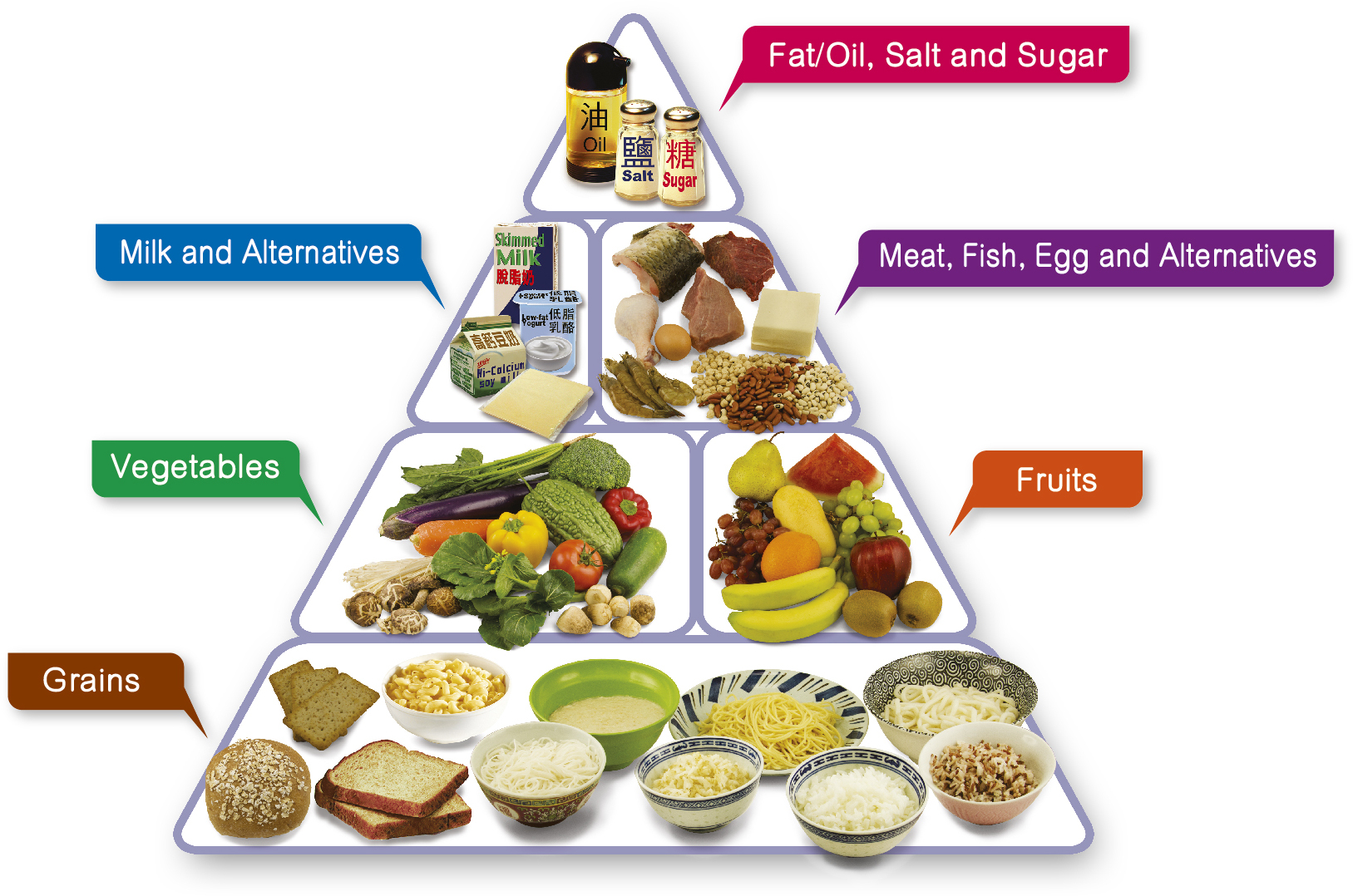Living a healthy life is a goal that most of us aspire to achieve, but it can often feel overwhelming with the flood of information out there. From diet fads to new fitness trends, knowing where to begin can be challenging. This article breaks down essential health tips that cover all areas of wellness—from physical fitness and mental health to nutrition and stress management. These practical tips are rooted in expert advice, easy to implement, and sustainable for a lifetime of health.
1. Prioritize a Balanced Diet
A balanced diet is one of the cornerstones of good health. Instead of focusing on restrictive diets, aim for balanced meals that include whole grains, lean proteins, healthy fats, and plenty of fruits and vegetables. This approach ensures your body receives essential nutrients, vitamins, and minerals to function optimally.
Tip: Try the “plate method,” where half your plate is filled with vegetables, a quarter with lean protein, and the remaining quarter with whole grains. This simple visual can help you portion meals without strict calorie counting.
Expert Insight: Registered dietitians recommend incorporating a variety of colors on your plate to ensure you’re getting a diverse range of nutrients.
2. Stay Hydrated
Hydration plays a key role in maintaining energy levels, supporting digestion, and promoting clear skin. Dehydration can cause fatigue, headaches, and reduced focus, which makes drinking enough water throughout the day essential.
Tip: Aim to drink at least eight glasses (about two liters) of water daily, but adjust based on your body weight, activity level, and climate.
Expert Insight: If plain water is challenging to consume, try adding a slice of lemon or cucumber for a refreshing taste.
3. Incorporate Regular Physical Activity
Regular exercise is vital for cardiovascular health, muscle strength, mental clarity, and emotional well-being. Aim for at least 150 minutes of moderate aerobic activity, like brisk walking, or 75 minutes of vigorous activity, such as running, each week.
Tip: Find activities you enjoy, whether it’s dancing, swimming, or hiking. This makes it easier to stay consistent and view exercise as something to look forward to.
Expert Insight: Mixing cardio with strength training exercises can lead to the best overall results for weight management, bone density, and muscle growth.
4. Prioritize Quality Sleep

Good sleep is essential for physical and mental health. A lack of sleep can lead to weight gain, memory issues, and increased risk of chronic diseases. Most adults need between 7-9 hours of sleep each night for optimal function.
Tip: Establish a consistent sleep schedule by going to bed and waking up at the same time each day—even on weekends. Reducing screen time an hour before bed can also improve sleep quality.
Expert Insight: Create a calming bedtime routine that includes dimming lights, reading a book, or practicing deep breathing exercises.
5. Manage Stress Effectively
Chronic stress can lead to mental and physical health issues, including high blood pressure, anxiety, and depression. Stress management techniques, such as mindfulness, meditation, and yoga, can help improve overall well-being.
Tip: Practice deep breathing exercises for a few minutes daily, especially during moments of stress. Inhale deeply, hold for a few seconds, and exhale slowly.
Expert Insight: Journaling or talking to a friend can provide emotional relief and clarity during stressful times.
6. Practice Mindful Eating
Mindful eating involves paying full attention to the experience of eating and savoring each bite. This approach can prevent overeating, improve digestion, and help you enjoy your food more fully.
Tip: Avoid distractions like screens or phones while eating. Chew each bite thoroughly and take your time to notice the flavors, textures, and aromas.
Expert Insight: Mindful eating can help foster a healthy relationship with food, reducing binge eating tendencies and promoting better portion control.
7. Limit Processed Foods and Sugar
Processed foods and added sugars can contribute to inflammation, weight gain, and increased risk of chronic diseases like diabetes and heart disease. Focusing on whole, minimally processed foods can help you feel more energized and satisfied.
Tip: Swap sugary drinks for water or herbal teas and choose whole-grain options over refined grains. Snacking on fruits, nuts, or yogurt instead of processed snacks can also make a significant difference.
Expert Insight: Try meal prepping for the week to avoid the convenience trap of processed foods, especially during busy days.
8. Stay Connected and Build Relationships
Strong social connections are associated with longer, healthier lives. Socializing can boost mood, reduce stress, and improve mental health. Make time to connect with family and friends regularly to foster supportive relationships.
Tip: Schedule regular catch-ups with loved ones, join social clubs, or volunteer to meet new people and build meaningful connections.
Expert Insight: Experts suggest prioritizing face-to-face interactions, as they have more profound positive effects on emotional well-being compared to online interactions.
9. Schedule Regular Health Checkups
Preventive health care is key to catching potential health issues early. Regular checkups with your healthcare provider can help monitor your health, update vaccinations, and screen for any underlying conditions.
Tip: Set reminders for annual physicals, dental cleanings, and any screenings recommended based on age or medical history.
Expert Insight: Doctors recommend creating a health journal to track any symptoms or questions you may have, making appointments more productive.
10. Practice Gratitude and Positivity
Cultivating a positive outlook can reduce stress, improve mental health, and even enhance physical health. Practicing gratitude helps shift focus from what’s missing to what’s present in your life.
Tip: Start a gratitude journal, where you write down three things you’re grateful for each day. This simple practice can have a lasting impact on mood and mindset.
Expert Insight: Psychologists suggest that gratitude can rewire the brain to focus on positive aspects of life, improving resilience in the face of challenges.
11. Avoid Harmful Habits
Smoking, excessive alcohol consumption, and drug use can have detrimental effects on health. Eliminating or reducing these habits is essential for a healthier life.
Tip: If quitting seems daunting, seek support from friends, family, or support groups, and consider consulting a healthcare provider for guidance.
Expert Insight: Experts recommend setting realistic goals and tackling one habit at a time to increase the chances of long-term success.
12. Engage in Mental Stimulation
Keeping the brain active is just as important as physical health. Mental stimulation through reading, puzzles, or learning new skills can improve cognitive function and delay age-related cognitive decline.
Tip: Try incorporating a new hobby, such as learning a musical instrument, language, or skill to keep the mind engaged.
Expert Insight: Neuroscientists suggest combining mental stimulation with physical activity (like dancing or yoga) for a double benefit on brain health.
13. Embrace Time Outdoors
Spending time outdoors can improve mood, reduce stress, and increase vitamin D levels. Natural light and fresh air are beneficial for both physical and mental health.
Tip: Aim to spend at least 15-30 minutes outside each day. Whether it’s a walk in the park or simply relaxing on your balcony, regular exposure to sunlight can work wonders.
Expert Insight: Studies have shown that time in nature can lower blood pressure, reduce inflammation, and boost immune function.
14. Set Realistic Goals
Setting realistic and achievable health goals provides motivation and structure, making it easier to adopt a healthy lifestyle. Start small and gradually increase the complexity of your goals as you progress.
Tip: Use the SMART goal-setting framework—Specific, Measurable, Achievable, Relevant, and Time-bound—to plan and track your health goals.
Expert Insight: Health professionals advise breaking down large goals into smaller, manageable steps to avoid feeling overwhelmed.
15. Laugh More and Find Joy in Small Moments

Laughter and joy are powerful health boosters. They relieve stress, release endorphins, and can even enhance immune function.
Tip: Engage in activities that bring you joy, whether it’s watching a comedy show, playing with pets, or spending time with loved ones.
Expert Insight: Studies show that laughter has positive physiological effects, like improving cardiovascular health and lowering cortisol levels.
Conclusion
Adopting a healthy lifestyle doesn’t require drastic changes or unrealistic goals. By making small, sustainable adjustments across different areas of your life—diet, exercise, sleep, stress, relationships, and mindset—you can significantly improve your overall health and well-being. The tips provided in this article offer a holistic approach to health, making it easier to create habits that support a happier, healthier life. Remember, wellness is a journey, and every small step you take contributes to long-term success.
FAQs
What are the most important factors for maintaining good health?
Answer: Good health is achieved by balancing physical, mental, and emotional wellness. Key factors include a balanced diet, regular exercise, adequate sleep, stress management, hydration, avoiding harmful habits, and building positive relationships.
How much water should I drink daily?
Answer: Generally, drinking about 8 glasses (2 liters) of water daily is recommended, though needs vary based on factors like body size, activity level, and climate. Thirst is usually a good indicator, and staying hydrated throughout the day is crucial.
What’s the best diet for long-term health?
Answer: A balanced diet rich in whole foods like vegetables, fruits, whole grains, lean proteins, and healthy fats is ideal. Instead of restrictive diets, aim for moderation, portion control, and a variety of nutrient-dense foods.
How can I start exercising if I’m a beginner?
Answer: Begin with low-impact exercises like walking, light stretching, or beginner fitness classes. Start slow, set small, achievable goals, and gradually increase the intensity. Choose activities you enjoy to stay motivated.
How does sleep affect my health?
Answer: Sleep is vital for mental clarity, physical energy, and immune function. Quality sleep helps with muscle recovery, memory, mood regulation, and overall energy. Adults should aim for 7-9 hours per night.
What are some effective ways to reduce stress?
Answer: Effective stress management techniques include deep breathing, mindfulness meditation, regular physical activity, and maintaining hobbies. Connecting with loved ones or writing in a journal can also reduce stress.
How often should I get a health checkup?
Answer: A general health checkup is typically recommended annually, though specific tests may be required more or less frequently based on age, medical history, and risk factors. Consult your healthcare provider for a personalized schedule.
What is mindful eating, and why is it beneficial?
Answer: Mindful eating is paying full attention to the eating experience, from savoring flavors to recognizing hunger and fullness cues. This practice can help prevent overeating, improve digestion, and foster a healthier relationship with food.
Can small lifestyle changes really improve my health?
Answer: Yes, even small changes—like drinking more water, taking the stairs, or reducing sugar intake—can have significant health benefits over time. Consistency is key, and small steps often lead to lasting habits.
What’s the best way to quit harmful habits like smoking?
Answer: Quitting harmful habits can be challenging but manageable with the right support. Set a quit date, seek support from friends or family, consider professional guidance, and replace the habit with healthier activities. Counseling, support groups, and medications may also help.
How can I boost my immune system naturally?
Answer: To strengthen immunity, focus on a nutrient-rich diet, regular exercise, quality sleep, and managing stress. Avoid smoking, limit alcohol, and consider immunity-boosting foods like citrus fruits, leafy greens, and probiotics.
What’s a realistic way to start practicing gratitude daily?
Answer: A simple gratitude practice is to write down three things you’re grateful for each day, either in the morning or before bed. Reflecting on positive moments can help build a habit of looking for joy in daily life.
How much exercise do I need weekly for optimal health?
Answer: For adults, it’s generally recommended to aim for at least 150 minutes of moderate aerobic exercise (like brisk walking) or 75 minutes of vigorous activity (like running), along with strength training exercises twice per week.
Are supplements necessary for good health?
Answer: Supplements can be beneficial if you have specific deficiencies, but they’re not always necessary if you follow a balanced diet. Consult a healthcare provider to determine if you need supplements, as excessive intake of certain vitamins can have negative effects.
How can I stay motivated to live a healthier lifestyle?
Answer: Set small, achievable goals, focus on enjoyable activities, and reward your progress. Tracking your health journey and finding a support system can help keep motivation high. Remember, health is a journey, not a destination.



